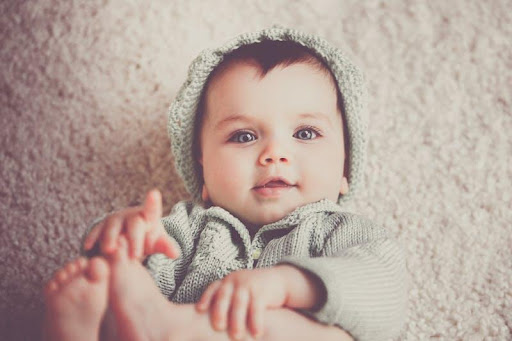Newborn Caring Guide for First-Time Parents

Bringing your first child home after birth is a monumental occasion. So it is the acceptance that you will now be sharing your space with this tiny new guest. But while you’re excited to love, care and play with your baby, it is natural to feel apprehensive about looking after your child. You may worry about not doing enough or hovering too much around your baby. However, recognizing what your child needs and learning to provide them with the love and care they need comes with time and a lot of practice.
Still, it would help if you had guidance in the right direction to adequately do your job as a parent without worrying too much. So here is a no-fuss care guide for first-time parents.
Pay Attention To Your Baby’s Milestones
Babies have age milestones. It is a surface-level view of gauging whether your child is developing healthily or has some trouble with their growth. For instance, your child may walk, talk, or crawl after a certain age. While babies may show specific deviation and bloom much later than the designated time, your child’s movements, stunted development, and inability to control their limbs should alarm you.
Babies are susceptible to birth injuries, and most of these conditions take time to express themselves. However, a qualified doctor can inform you when your child got injured and the possible cause. If it was a clear case of hospital negligence, such as cerebral palsy, you may file for birth injury lawsuits and hold the staff who handled your baby’s birth responsible. However, keeping an eye on your child’s development and educating yourself on the delays your baby may face can help you look after your child better. Anytime you feel your child is not going according to age, consult a doctor and not jump to assumptions.
Be Careful If Your Child Has a Fever
If a newborn has a high temperature, this may alert parents. However, there are many reasons why a child may have a high fever. Some common causes of fever in newborns include infection, teething, etc. Sometimes the fever may not be serious and will go away on its own. However, you must be vigilant if your child has a high temperature so that it does not get too high. Feverish children can quickly become dehydrated, and if their temperature reaches unsafe levels, they may need to be hospitalized. At the hospital, your child will be in safe hands. The medical staff will do everything possible to ensure that he recovers and returns to his normal state. In some cases, pediatric patients can get their treatment through neonatal picc catheters. This makes it easy for medication to enter the bloodstream, which can help your child feel better faster.
Look After Your Baby’s Hygiene
Cleanliness is important. Your newborn is still developing an Immune system, so leaving them filthy too long can be detrimental to their health. Anytime you notice your baby needs a diaper change, ensure you attend to that immediately. If your baby has diaper rashes or the brand is causing an allergic reaction, you can always donate your older diapers and purchase new, more sensitive ones. Babies should get bathed often. You can set a daily bath routine before bed and once in the morning. The water should be lukewarm, and You should fill the tub enough to immerse your baby.
Make sure the products you use are suitable for your baby’s skin and don’t have any harsh chemicals. Clipping your baby’s nails is also part of hygiene. It also prevents your child from hurting themselves as they move their arms. As new parents, your house may not be the cleanest, but if you don’t let dust accumulate or leave your home covered in trash, messy is perfectly healthy for your baby.
Let The Baby Sleep In
Babies sleep more than 16 hours a day. So if your child wakes up, you should not be surprised if they go back to napping. Newborns also treat sleep in intervals of two to four hours. This can interfere with your sleep schedule since your child may cry for you. Babies also need food every four hours, making them upset, and they may start crying. In all these cases, ensure you feed the baby before putting them down for sleep. If your baby goes on too long without waking up, the only time you should try waking them is to feed them.
While placing the child in their crib, make sure they sleep on their back and don’t have any restrictive clothing or toys. Until six months, your child can sleep with you in the same room, but it will help if you start putting them to sleep in their room to help them adjust to their new space. If you feel protective about your child, invest in a good baby monitor to see them while you’re in your room away from the baby.
Interact With Your Child
Being a parent is more than burping and soothing the baby. Your child needs active interaction. The sound of your voice and the feeling of your touch helps in your child’s development. You should use your words to talk to your baby and answer every gurgle or sound your child makes. This allows the baby to learn your voice and recognize you anytime you speak. When picking up and cradling your baby, you should do that often.
Babies need their parent’s touch. It is immensely soothing to them and gives them the support they need if they feel upset or anxious. Doctors also recommend skin on the skin since the heat and warmth from the body goes into your child, which helps a baby stay calm. You can also invest in sensory toys that engage your baby’s senses. These toys come in different shapes and sizes according to your baby’s age. Sensory toys help in cognitive development and make your child more receptive to their environment. All of these are fundamental for the baby’s well-being.
Final Thoughts
Becoming new parents is exciting and scary, yet, you have what it takes to look after your baby to the best of your abilities. As a new parent, it is easy to doubt yourself and worry about your child’s well-being, but with a few simple steps, you can keep up with your baby’s demands in no time. If you notice that your baby is not developing or showing unusual signs and symptoms, always seek a doctor’s opinion. This may help ease your concerns and narrow down the cause of your child’s health. You cannot compromise on your baby’s hygiene.
Your child needs proper cleaning and maintenance to stay well. Sleep is vital for your offspring and yourself. Finally, interact with your baby and enjoy being a parent. The songs you sing and how you cradle the baby reflect positively on your child’s cognitive functions. So don’t hold back showering them with immense love.




